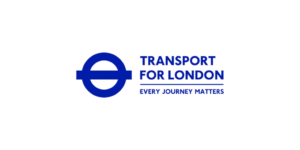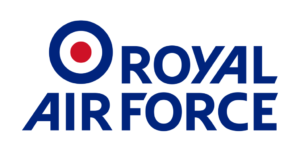
Freight Forwarder / Shipping Agent careers guide
Picture it: A priceless artwork has to be moved safely between international museums without getting lost, scratched or stolen. Who can you call? Freight forwarders!
Freight Forwarding Careers: What’s Involved
What Is A Freight Forwarder?
A freight forwarder, or sometimes known as a ‘forwarder’ or ‘forwarding agent’, is the person who organises the safe transportation of goods or exports. This could mean using all sorts of transport including airlines, cars, ships and trains. You’ll plan the entire journey using IT systems that give you control at the touch of a button.
If you’re organised, have good IT skills and love the idea of planning journeys that don’t take 80 days around the world, this could be right up your street…
Fun fact: Freight forwarding jobs date all the way back to 1836.
What Does A Freight Forwarder Do?
Freight forwarders play a super-important role in the movement of goods from one place to another. Not all those goods will be gold bullion, life-saving medicine or precious artworks – but they’ll always be precious to somebody.
By using IT systems you’ll work out the best way to transport the products and goods you’ve been tasked to move, taking into account the customer’s delivery requirements. In large companies, you could have the chance to travel internationally.
HOT TIP: This is definitely one of those jobs where you could get to travel abroad on the company’s credit card. Start brushing up on your languages! If you can speak different languages, this can be a great advantage when companies are choosing employees to travel abroad. [/su_column]
How Much Money Can You Earn As a Freight Forwarder?
These LMI Job Trends give you a sneak peek of how much you could earn starting out for this career, and how much your salary could grow with experience.
Average Salary For Freight Forwarders
Recent labour market information says you can earn on average between £12,000 and £30,000 a year as a freight forwarder or shipping agent in the UK.
Your starting salary can vary because of factors like level of experience, training, or location. Your salary as a freight forwarder will increase over time as you build skills, knowledge and experience.
Some freight forwarder employers will offer bonus schemes, pension schemes and even a company car.
Skills You Need To Become A Freight Forwarder
Useful Skills To Put On Your CV:
- Good basic digital skills and a willingness to learn new software as needed
- Great problem solving skills and the ability to work under pressure and think on your feet
- Organisational and planning skills – if you are planning routes across all kinds of different transport types, you’ll have lots of routes/projects happening at the same time. You’ll need to stay on top of it.
- Good resilience – when things don’t go according to your amazing plans, you’ll be able to adapt and make new decisions on what’s best to complete the mission!
- Great communication skills – keeping open communication with customers is very important;
- Ace teamwork skills – it takes a team to get that freight where it needs to be.
- Having some grounding in geography – your freight could be moving across the UK, Europe and the world. You’ll learn your freight routes in time but it always helps to know Brighton isn’t in Scotland and Peru is not in Africa
- Understanding different cultures and religions – this is so important, especially when working internationally.
How Do You Get These Skills?
Vocational qualifications and work experience will help you build these skills over time.
Build Your Skills With the FREE Young Professional Programme
What Qualifications & Training Do You Need For Freight Forwarding Careers?
School, College And Training
If you want to begin your freight forwarding training straight after school, you’ll find that many employers would love to see at least four GCSEs or the equivalent – including English and maths – on your CV (grades 9-4 / A* – C).
Some companies may also want you to have A-levels or H grades, too – but often won’t require you to have a degree.
DID YOU KNOW? In some parts of the UK you can also do a BTEC National Awards in Logistics, so GCSEs and A-levels are not your only way in!
Taking a Higher National Diploma (HND) in any of the above subjects could also be a very sensible option. As well as the specialised HNDs in the transport and logistics sector on offer, you can just as easily explore broader subjects like business studies if they include relevant modules.
When you’ve decided that being a freight forwarder is the path for you, you might find that not all companies and employers need you to have a degree. They might find it even more appealing if you have practical experience within a similar industry. However, getting a degree might help you enter at a higher level or join one of the graduate training schemes offered by some of the larger employers.
Degrees And University
This is a great role for an IT-literate graduate in business, geography or languages! If you decide to go to university to pursue your freight forwarding career, this may allow you to enter at a more senior level. Relevant degree subjects include:
- accounting/finance
- business/management
- economics
- geography
- modern foreign languages
- supply chain management
- transport/distribution/logistics
If you’d like to enter freight forwarding at a more senior level, or progress more quickly, you could do a relevant degree and then looking at postgraduate options. Masters in logistics and supply chain management are available in universities across the UK. Why not check out CILT UK? They can keep you up to date with the industry and offer student memberships for cash-strapped students too!
Some larger organisations will offer graduate training schemes, where you’ll spend up to two years exploring the company and working in different areas.
You might also be able do additional qualifications like the CILT ones listed below:
- Level 3 Certificate in Logistics and Transport – for a career within transport and supply chain management.
- Level 5 Professional Diploma in Logistics and Transport – to develop core management skills.
Freight Forwarding Career Path And Progression
What Work Experience Do You Need For Freight Forwarding Jobs?
Work Experience Tips
Like most professions, work experience is always a big plus and it doesn’t have to be in the freight forwarding sector.
Ideally, you’ll have done some work experience which includes broadening your IT skills and day to day office work such as admin and answering phone calls. You’ll also know how to treat customers in a professional and polite way. This is important, because a lot of your work could involve speaking with people to make sure freight has been forwarded just the way you planned it.
Types Of Work Experience:
- Work shadowing (even if it’s just for a day)
- Work placements in a company
- Work placements on a degree course
If you’d like to do more specific work experience, why not get in contact with a relevant company and ask to do some shadowing work? This is a great way to learn the desired trade skills first hand.
How To Find Freight Forwarding Jobs: Next Steps
To find jobs for young people in this role, search on jobs boards for early career roles with these words in the title:
- Freight forwarding trainee
- Trainee import/export clerk
- Trainee shipping agent
- Shipping trainee
- Freight forwarding apprenticeship
- Graduate freight forwarder
- Graduate shipping agent jobs
When building up your qualifications and work experience you can also look into developing skills in the following areas. They will help you understand transport and logistics from all kinds of viewpoints:
- packaging and goods
- order picking
- sorting
- warehousing
These Youth Friendly Employers Offer Great Opportunities
These Youth-Friendly Employers might be able to help you get great fantastic shipping agent jobs, training or experience! Take a look.
Explore NOVUS degree courses for logistics careers
Get a guaranteed logistics graduate job on completing your NOVUS supply chain management course!
Logistics Career Tips & Opportunities
Transport and Logistics Career Guides
View job descriptions with average UK salary, useful qualifications and a variety of routes into this career.
Resources And Links
YES! I Want More Free Careers Help...
So what are you waiting for? Grab your future.






























